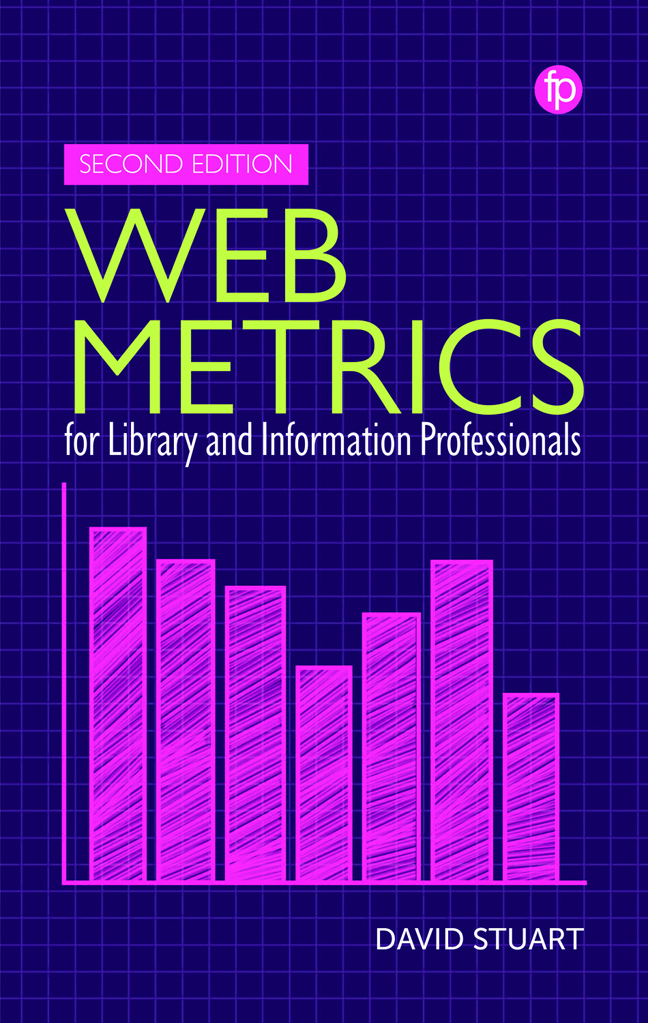Book contents
- Frontmatter
- Contents
- Figures and Tables
- About the Author
- Preface to the Second Edition
- 1 Introduction
- 2 Bibliometrics, Altmetrics, Web Metrics and Webometrics
- 3 Data Collection Tools
- 4 Evaluating Web Impact
- 5 Evaluating Social Media Impact
- 6 Relational Web Metrics and Social Network Analysis
- 7 Web Bibliometrics
- 8 Web Metrics for Data and Code
- 9 The Future of Web Metrics and the Library and Information Professional
- References
- Index
4 - Evaluating Web Impact
Published online by Cambridge University Press: 20 December 2023
- Frontmatter
- Contents
- Figures and Tables
- About the Author
- Preface to the Second Edition
- 1 Introduction
- 2 Bibliometrics, Altmetrics, Web Metrics and Webometrics
- 3 Data Collection Tools
- 4 Evaluating Web Impact
- 5 Evaluating Social Media Impact
- 6 Relational Web Metrics and Social Network Analysis
- 7 Web Bibliometrics
- 8 Web Metrics for Data and Code
- 9 The Future of Web Metrics and the Library and Information Professional
- References
- Index
Summary
Introduction
The web provides the opportunity for metrics to be used for a wide range of investigations, most of which may be broadly categorised as either evaluative or relational. This chapter takes a general view of evaluative metrics for websites, blogs and other self-hosted content; Chapter 5 considers evaluative metrics for third-party social media services that a large number of individuals and organisations make use of; and Chapter 6 considers relational web metrics. In many ways the split between self-hosted and third-party hosted content is an artificial one. For example, millions of blogs are hosted on third-party sites such as Blogger.com, while individuals and organisations do not have to rely on a microblogging service such as Twitter, but could host their own microblogging service using open source software such as Mastodon (https://joinmastodon.org). The split reflects a significant difference in the control a user has over the data that is available and an uncertainty in the data that is collected.
When people or organisations host their own content on their own servers the only limitations on the information that they gather about the use of content on their site are the technical problems to be overcome. However, when a website is integrated into the wider ecosystem there is more uncertainty: in the same way that there is no simple answer to how many web pages exist, there is not a simple answer to how many links a website has pointing to it or how many times it is mentioned. This is a problem that is made more difficult as the web is necessarily viewed through the limited view of a particular search engine or other tool, and the limitations of the tool are not always explicit. In comparison, many of the large social network sites provide a restricted environment where only certain behaviour is allowed (because of editorial and technical restrictions) and only certain data may be accessed. These restrictions also reduce the ambiguity in the data available from the services; a Twitter account has a known number of followers, a Facebook user has a known number of friends, a YouTube video has a known number of views. We may disagree with the concept of Facebook's ‘Like’ button or what counts as a view on YouTube, but these are known discernible units.
- Type
- Chapter
- Information
- Web Metrics for Library and Information Professionals , pp. 59 - 84Publisher: FacetPrint publication year: 2023



